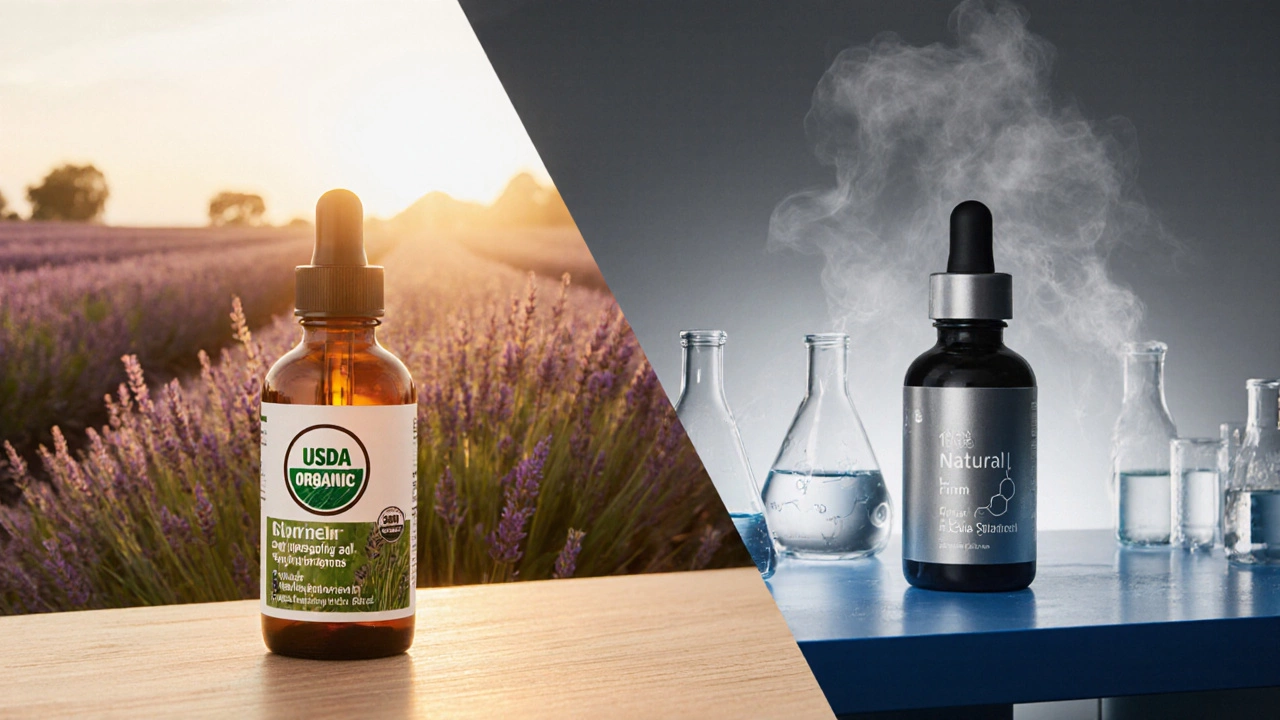100% Natural Beauty: Pure, Simple, Effective
When you hear 100% natural, it means a product or routine that contains only ingredients sourced from nature, with no synthetic chemicals added. Also known as purely natural, it strives to work with skin’s own biology rather than against it. This approach covers everything from cleansers to moisturizers, and even the DIY recipes you can mix at home.
One major branch of this movement is organic skincare, formulations that meet strict farming standards, avoid pesticides, and are certified by independent bodies. Organic skincare relies on sustainably grown botanicals, which often bring higher antioxidant levels and fewer irritants. Another hot sub‑topic is the natural face tightener, a blend of plant‑derived peptides, collagen‑boosting extracts, and gentle acids that firm skin without invasive procedures. These tighteners illustrate how 100% natural can still deliver visible anti‑aging benefits.
Why 100% Natural Matters in Today's Beauty Landscape
Consumers are demanding transparency, and the industry is responding with more clean‑label products. A 2024 consumer survey showed that 68% of shoppers prefer items labeled “natural” over conventional alternatives. This shift pushes brands to source responsibly, test rigorously, and label accurately. The trend also fuels the rise of cruelty‑free cosmetics, which avoid animal testing and often align with natural philosophies. When a product is both 100% natural and cruelty‑free, it signals a commitment to ethical sourcing and skin health.
Practically speaking, adopting a 100% natural routine means rethinking your ingredient list. Look for terms like “plant‑based,” “organic certified,” and “biodegradable.” Avoid hidden synthetics such as parabens, sulfates, and phthalates. Many natural formulas swap these for ingredients like aloe vera, jojoba oil, and green tea extract, which soothe, hydrate, and protect. By swapping out a chemical cleanser for a gentle oat‑based wash, you’ll notice less tightness and fewer breakouts.
Another key benefit is versatility. Natural ingredients lend themselves to DIY projects, letting you customize formulas for your skin type. Mixing a few drops of rosehip oil with a carrier like shea butter creates an antioxidant‑rich night cream that supports collagen synthesis. Such DIY skincare not only saves money but also guarantees you know exactly what’s on your face.
From an educational standpoint, mastering 100% natural techniques prepares you for a career in modern aesthetics. Beauty schools, including Dollhouse Beauty Academy, now embed natural‑product modules into their curricula. Students learn how to evaluate ingredient safety, formulate balanced routines, and counsel clients seeking clean beauty solutions. This knowledge is increasingly marketable as salons and spas add natural services to their menus.
Let’s not forget the science behind natural actives. For example, niacinamide derived from fermented barley can improve barrier function, while bakuchiol—a plant‑based alternative to retinol—offers comparable anti‑aging effects without irritation. Understanding these equivalents helps you replace synthetic actives with natural counterparts while maintaining performance.
When you combine natural skincare with proper technique, the results can rival those of high‑tech treatments. A consistent routine that includes an organic cleanser, a natural face tightener serum, and a cruelty‑free moisturizer can reduce fine lines, even tone, and boost radiance. Think of it as a non‑invasive “facelift” you can apply each morning and night.
Finally, the environmental impact of 100% natural products is noteworthy. Biodegradable formulas break down faster in waterways, reducing pollution. Sustainable packaging—like glass jars or recycled plastic—further lessens the carbon footprint. Choosing natural not only benefits your skin but also supports a healthier planet.
Below, you’ll find a curated collection of articles that dive deeper into these topics. From wrinkle‑fighting ingredients to the truth about cruelty‑free certifications, each piece offers actionable tips and real‑world examples to help you build a truly natural beauty regimen.
Is Organic Skincare Really 100% Natural?
Find out what 'organic' really means for skincare, how it differs from 'natural', and how to read labels to spot true organic products.

